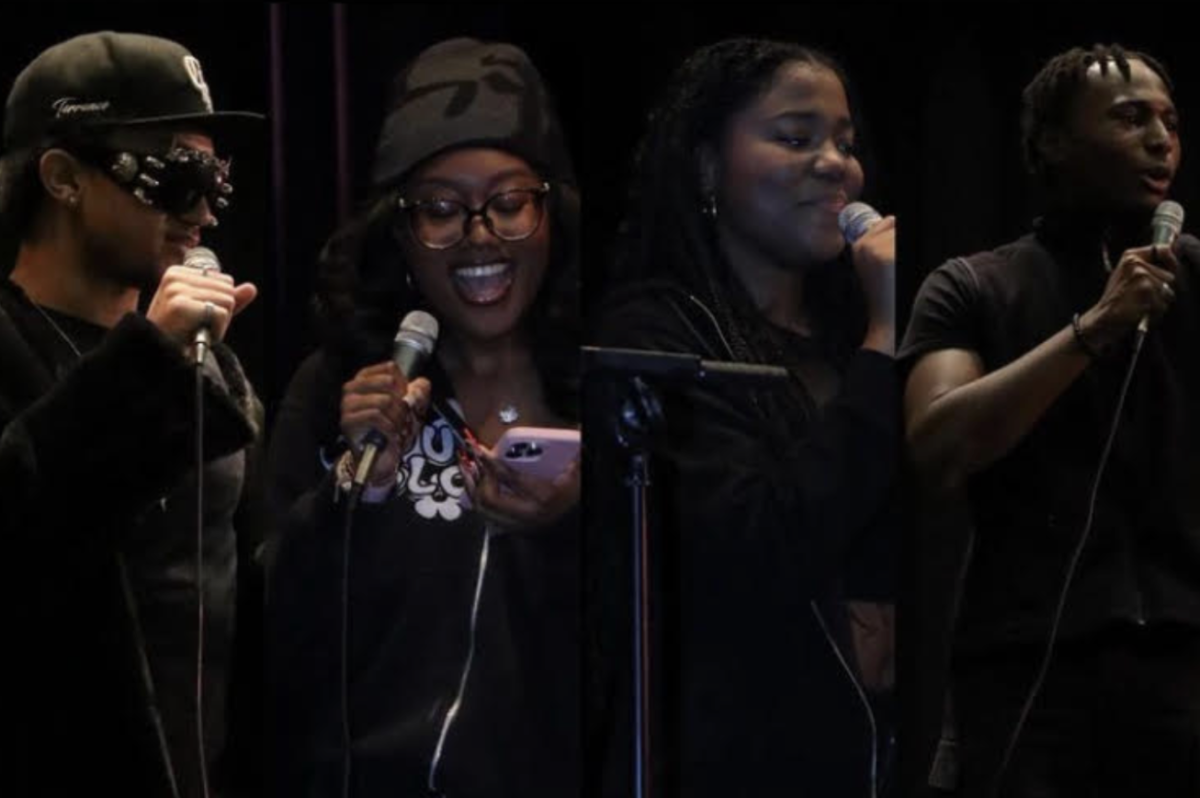Since 1976, February has been the month to celebrate Black voices and stories across the United States. This year at Tech, it was a time for the National Society of Black Engineers (NSBE) to shine a spotlight on historical Black figures in STEM, while the Black Student Union (BSU) hosted events with support from faculty and staff, to help the school community honor Black History Month in a variety of ways.
So when did Black History Month start being celebrated at Tech?
According to Black History 365 teacher Mr. Adam Stevens, “Black History Month became a big mandatory thing the February after George Floyd was killed.”
In the wake of Mr. Floyd’s murder in 2021, Tech has tasked all teachers with giving at least one lesson in February relating to Black History, or Black people who have made significant contributions to their specific field of study.
However, Mr. Stevens has concerns about this practice. “One 40-minute lesson, one day a year, makes students wonder if the teachers actually care about Black History, or if they’re just doing the lesson because it’s mandated now,” Mr. Stevens explained. “It feels phony to them.”
“Students said it felt like something their teachers tacked on at the end of the month,” remarked Ms. Ramona Richardson, director of Substance Prevention and Rehabilitation through Knowledge (SPARK), whose office in the center of the cafeteria is a safe haven for Black students and non-Black students alike. “It doesn’t seem to be honoring. That feels like an obligation,” she said.
Many students feel similarly. According to a recent Instagram poll conducted by The Survey, 61% of Tech students think Tech is not doing enough to honor Black History Month.
“Teachers teach one lesson about someone significant in that subject and it’s a bit strange how out of all school days, only one is used to highlight a Black person, and it’s just for Black History Month,” said NSBE Secretary and Software Engineering major Fatoumata Barry (‘25). “This is not irregular though; it feels like this every Black History Month since I’ve come to this school.”
Law and Society major and BSU Parliamentarian Chadwyck Beckford (‘24) elaborated that these concerns extend beyond the classroom. “There is a lack of advertisement and acknowledgment for Black spaces and Black history in the building,” he said. This kind of disaffection coincides with Tech’s enrollment numbers of Black students declining to about 5.6% in 2023; a seismic shift for a school that was once 50% Black and Hispanic in 1976.
At Tech, events planned by students and faculty advisors provide far more authentic celebrations of Black culture than the school administration could organize.
BSU’s Annual Luncheon, which was held for the second year on February 16th, brought dozens of Black students together to highlight their heritage. With performances from the girls step team, the Lady Dragons, and a spread of homemade food, students basked in a sense of community.
Executives in BSU and NSBE devoted approximately two months to planning this event, with support from Mr. Stevens and former Criminal Law teacher Ms. Rachel Germany, who both have long been committed to lessons about structural racism, injustice, and fostering a community among Black students. Mr. Stevens, the BSU’s advisor, described the club as “a place for students to pursue Black friendships.”
The NSBE forges a unique bond between Black students and the proud historical legacy they share. This February, they spearheaded one of Tech’s few official Black History tributes by featuring impactful Black engineers and scientists, such as Yvonne Clark and Mae C. Jemison, in the Daily Announcements. The chapter also connects Black students with new opportunities, such as partnering with NYU Tandon School of Engineering, attending national conventions (including ones associated with NASA), and offering drone programs through which students can receive Federal Aviation Administration license certifications.
Barry, who helped research and select Black innovators for the Spotlights in the Daily Announcements, believes that the passive celebration of the accomplishments of Black people’s accomplishments is not enough.
So what can Tech do to ensure that Black History is honored throughout the year? For some, cultivating Black culture in the building can make space to reflect on the past, present, and future.
Beckford argued, “The school should make it more known the safe spaces that are available for Black kids to go to, such as Ms. Ramona’s room in the cafeteria or Ms. Ford’s room on the second floor.” Ms. Traceyavon Ford is a school social worker located in room 2W5, whom students, regardless of race, love and visit often.
Students, including Aerospace Engineering major Oliver Rygh (‘24), the President of Tech’s NSBE chapter, feel that the step teams are an integral part of Black culture at Tech that often goes underappreciated. “I think we should rally around our step teams and make them an essential part of our school spirit,” said Rygh.
Both the Lady Dragons and Organized Chaos, Tech’s boys’ step team, are all incredibly talented. Yet, due to a lack of adequate promotion, many Tech students do not even know that they exist. Ms. Richardson, who is the advisor for the Lady Dragons and is also temporarily advising Organized Chaos, commented, “When we are at competitions, we don’t even have a cheering section like other teams, which is crazy because our school is so big.”
Outside of Tech, Ms. Richardson explains that the step teams are high profile, performing in “Wonderama three times, two documentaries, NY Living, Sesame Street, Guy Code, David Byrne’s show, and so much more.” Therefore, it is clear that the real challenge is cultivating student awareness of the step teams by getting them to come out and support the hard-working groups.
In the same way that Black History lessons in February can open a window to the past, which really deserves to stay open year-round, solutions for doing more to honor Black culture at Tech are also a good start. As Rygh expressed, “I believe in general that Tech is taking steps in the right direction, even if we’re far from supporting and integrating Black culture into our school.”








































